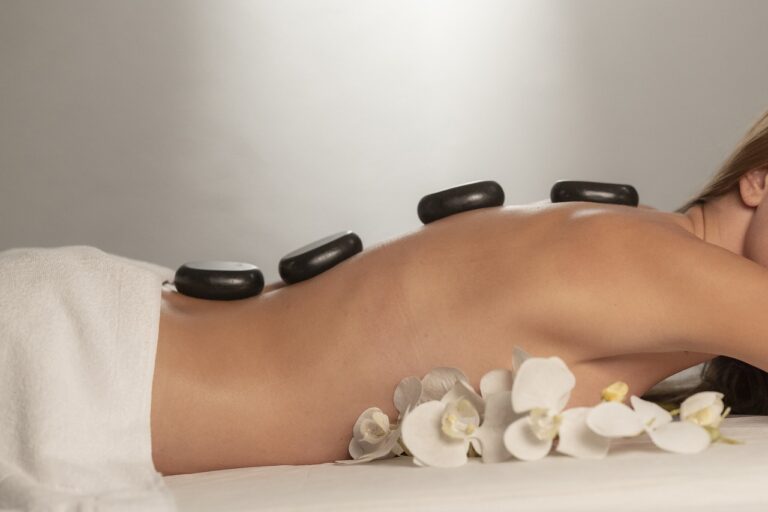How to Prevent and Treat Foot Swelling
all panel 777.com login, laserbook247, 99exch:Have you ever experienced foot swelling before? It can be uncomfortable and even painful, making it difficult to walk or stand for long periods. But fear not, there are ways to prevent and treat foot swelling that you can easily incorporate into your daily routine. Read on to find out more about how you can keep your feet healthy and free from swelling.
Stay Hydrated
One of the main reasons for foot swelling is dehydration. Make sure you drink plenty of water throughout the day to keep your body hydrated. This can help reduce swelling in your feet and ankles, as well as improve overall circulation.
Elevate Your Feet
If you find yourself sitting or standing for long periods, try to elevate your feet whenever possible. This can help reduce the amount of blood pooling in your feet and ankles, which can lead to swelling. Simply prop your feet up on a stool or cushion while sitting or lie down with your feet elevated above your heart for a few minutes each day.
Move Around Regularly
Sitting or standing in one position for too long can contribute to foot swelling. Make sure to move around regularly throughout the day to keep your circulation flowing smoothly. Take short walks, do some stretching exercises, or simply wiggle your toes to keep blood moving in your feet and ankles.
Wear Comfortable Shoes
Ill-fitting or tight shoes can restrict blood flow to your feet and increase the likelihood of swelling. Make sure to wear comfortable shoes that provide proper support and allow for natural movement of your feet. Avoid wearing high heels for extended periods, as they can put added pressure on your feet and lead to swelling.
Avoid Sitting with Crossed Legs
Sitting with your legs crossed for long periods can restrict blood flow to your lower body, including your feet and ankles. This can lead to swelling and discomfort. Try to sit with your feet flat on the floor or elevate them slightly to promote better circulation.
Practice Foot Exercises
Regularly exercising your feet and ankles can help improve circulation and reduce swelling. Try simple exercises like toe curls, ankle circles, and heel lifts to keep your feet strong and flexible. You can also try using a foot roller or massage ball to help relieve tension and promote blood flow in your feet.
Apply Cold Compress
If you’re experiencing foot swelling, applying a cold compress can help reduce inflammation and provide some relief. Simply wrap a bag of frozen peas or a cold gel pack in a towel and place it on the swollen area for 10-15 minutes. Repeat as needed throughout the day to help alleviate swelling and discomfort.
Try Compression Socks
Compression socks are specially designed to help improve circulation and reduce swelling in the feet and ankles. They apply gentle pressure to the legs, which can help prevent blood from pooling in the lower extremities. Consider wearing compression socks if you’re prone to foot swelling or if you’re going to be sitting or standing for long periods.
Massage Your Feet
A gentle foot massage can help stimulate circulation and reduce swelling in your feet. Take some time each day to massage your feet with your hands or a massage tool, focusing on areas that feel tight or swollen. You can also try using a foot bath with Epsom salt to help relax your muscles and reduce inflammation.
Maintain a Healthy Diet
Eating a balanced diet rich in fruits, vegetables, whole grains, and lean proteins can help reduce inflammation and swelling in your body, including your feet. Avoid excessive salt intake, as it can cause water retention and lead to swelling. Incorporate foods like leafy greens, nuts, and fatty fish into your diet to help keep your feet healthy.
FAQs
Q: How long does it take for foot swelling to go down?
A: The duration of foot swelling can vary depending on the cause. In general, mild cases of foot swelling may go down within a few days with proper self-care. However, if the swelling persists or is accompanied by other symptoms, it’s best to consult a healthcare professional for further evaluation.
Q: When should I seek medical attention for foot swelling?
A: You should seek medical attention for foot swelling if it is sudden, severe, or accompanied by pain, redness, warmth, or any other concerning symptoms. Additionally, if you have a history of heart failure, kidney disease, or other underlying health conditions, it’s important to consult a healthcare provider for proper diagnosis and treatment.
Q: Can certain medications cause foot swelling?
A: Yes, certain medications such as nonsteroidal anti-inflammatory drugs (NSAIDs), calcium channel blockers, and hormone therapy can sometimes cause foot swelling as a side effect. If you suspect that your medication is contributing to your foot swelling, talk to your healthcare provider about alternative options.
Q: Are there any natural remedies for foot swelling?
A: Yes, there are several natural remedies that may help reduce foot swelling, including soaking your feet in Epsom salt, applying aloe vera gel, or using essential oils like peppermint or lavender. Keep in mind that these remedies may provide temporary relief and should not replace medical treatment if your foot swelling is persistent or severe.
There you have it some tips on how to prevent and treat foot swelling. By incorporating these simple strategies into your daily routine, you can help keep your feet healthy and free from discomfort. Remember to listen to your body and seek medical attention if you have concerns about your foot swelling. Take care of your feet, and they’ll take care of you!







